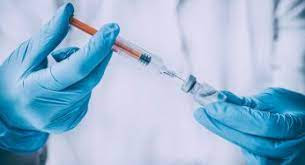Human Immunoglobulin (pH4) For Intravenous Injection (Covid-19) Is Proving To Be Effective In The Treatment Of Novel Coronavirus Disease
Human immunoglobulin therapy, sometimes called normal human immunoglobulin treatment, is the administration of a complex combination of immune antibodies to treat certain medical conditions. These include chronic hepatitis, multiple sclerosis, Parkinson's disease, rheumatoid arthritis, Lupus, and other autoimmune disorders. Although this form of therapy has proven successful in many cases, it can cause some serious side effects. The use of human immunoglobulin (pH4) for intravenous injection (COVID-19) has witnessed major success in the treatment of novel coronavirus disease.
Intravenous immunoglobulin injections are a more common form of Human Immunoglobulin Therapy, and they are usually given in conjunction with primary immunodeficiency. These types of injections are more efficient than subcutaneous immunoglobulin, as the body is able to absorb the human immunoglobulin immediately. Unlike subcutaneous immunoglobulin, which must be metabolized before entering the body, in vitro vaccines require that the substance is first introduced into the body. Once in the body, antibodies created in the laboratory are able to actively combat diseases and infections. In many cases, it has been observed that the plasma therapy or administration of human immunoglobulin (pH4) for intravenous injection (COVID-19) found to be effective in the treatment of COVID-19.
The most commonly used methods of Human immunoglobulin administration are intramuscular and intracerebroventricular, although subcutaneous and oral forms of immunoglobulins can also be used. Intramuscular injections are used to stimulate the production of human normal immunoglobulin in the bone marrow. An intracameral injection is often reserved for those with moderate to severe type I or II diabetes. Human immunoglobulin is a medical breakthrough discovery. It can effectively counter the adverse effects of autoimmune diseases such as Lupus, fibromyalgia, multiple sclerosis, and allergies. Recently, in February 2021, a recent trial showed the efficacy and safety of human rabies immunoglobulin in children.




Comments
Post a Comment